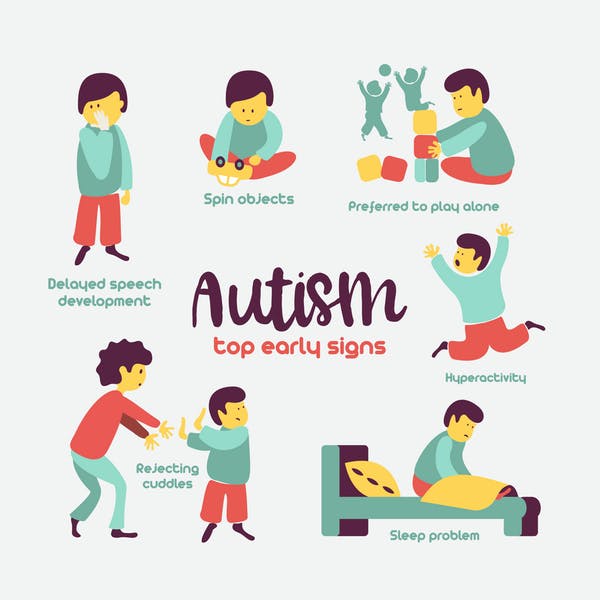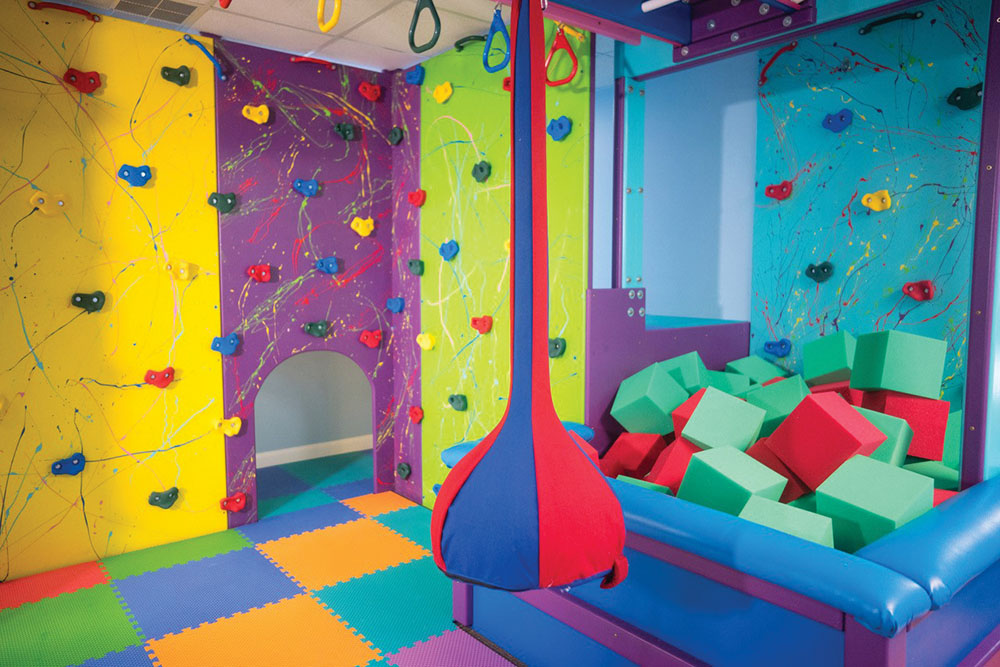“If you’ve seen one child with autism, you’ve seen one child with autism,” says Steven Morse, EdD, director of Garfield Park Academy in Willingboro NJ, quoting a well-known mantra that emphasizes the individualized circumstances for each child who has an autism spectrum disorder (ASD).
Part of what makes an ASD diagnosis so challenging for parents is the wide range of ways autism unfolds for different youngsters as they age. Milder forms of autism may be extremely subtle and may not appear as early as in more dramatic cases.
Diagnosing autism spectrum disorders is also complex because “there is not a blood test,” explains Lisa Goring, family services vice president of Autism Speaks. Instead of using a lab test, an ASD diagnosis is based on behavioral criteria — observations by professionals in development and neurology, in conjunction with reports by family members and teachers on specific communication, social and other behavioral criteria.
Associated Conditions
In addition, children with autism often have associated conditions, both medical and emotional. These may be harder to diagnose in a child with autism than in typically developing children because ASD frequently limits their ability to say what hurts or what’s bothering them.
For instance, seizure disorders occur in 25-40 percent of children with autism, but it isn’t always obvious that a seizure is taking place. Intellectual disabilities are also common in children with ASD. Many have anxiety and depression, and these may be difficult to recognize. A child with autism may also have ADHD, seasonal allergies or eating and gastrointestinal issues.
Reluctance to ‘Label’
Some families are simply reluctant to label a young child at all. Sometimes myths get in the way of accepting early intervention, suggests Karen Krivit, a consultant to Elwyn SEEDS and the Center for Autism Research. She has seen parents dismiss evaluations based on beliefs such as boys develop language skills slowly or learning to speak in a multilingual household confuses a child. In such cases, Krivit “tables the label” temporarily and focuses on getting help for the specific concerns that prompted the evaluation.
“ASD is a very difficult diagnosis for families, requiring an adjustment in the way you see your child and in expectations of parenthood,” says Caroline Eggerding, MD, chief medical officer at Bancroft in Haddonfield, NJ.
It’s complicated to get an accurate autism diagnosis, and to diagnose any emotional, mental health, medical or neurological problems that may be associated with ASD. Parents should stay informed, be careful data collectors and seek fresh evaluations and revisions to therapies when not satisfied that their child is making expected progress.
Comfort with Diagnosis and Plan
“As lifelong advocates for their children, parents should be constantly — politely and factually — looking and questioning professionals to understand how they arrived at their diagnoses,” says Dr. Morse.
Because treatment plans generally follow from the diagnoses, parents need to be confident in them. No one wants to base a complex behavioral plan on a diagnosis that missed medical conditions like reflux, sleep problems or hearing loss.
“If you’re polite and asking the right questions, you never have to worry about alienating your team,” says Dr. Eggerding. Reevaluation should be considered when the child fails to make expected progress.
Goals need to be broken down into specific, measurable steps. For example, one goal might be for the child “to look at the person who calls her name,” says Goring. There could be several goals, each with built-in time frames.
If several months go by and you see only minimal progress on these goals, that should signal the team to reevaluate. The goals might be inappropriate or the interventions or teaching approach could be ineffective. Goring advises concerned parents to politely ask why it looks as if the child is not going to meet the goals, based on his current rate of progress.
Fresh Eyes
It’s appropriate to seek fresh input if you’re not satisfied with expected progress, or when important changes can’t be accounted for, or even if something is going on that you can’t quite identify.
In those circumstances, experts suggest obtaining a “comprehensive evaluation” from an interdisciplinary team experienced in developmental problems. Members of the team would ideally include a developmental pediatrician, neurologist or neuropsychiatrist, occupational therapist or professional specializing in sensory issues, speech/language pathologist, psychologist and other specialists, depending on the child’s needs.
A Tough Position
Parents usually know their children best and serve as their best advocates. But it can be tough to keep options open and expectations uncapped while remaining realistic and not acting on biases or chasing after unproven new interventions.
Experts encourage parents to become knowledgeable with the help of reputable support groups, videos and “toolkits.” Fundamental to managing your child’s progress is what Dr. Eggerding calls “a good medical home.” Whether it’s a family doctor, pediatrician’s office or a developmental pediatrician, such a “home base” helps coordinate tests, other specialists and ultimately, appropriate therapies and placements.
Ann L. Rappoport, PhD is a contributing writer to MetroKids.fd






